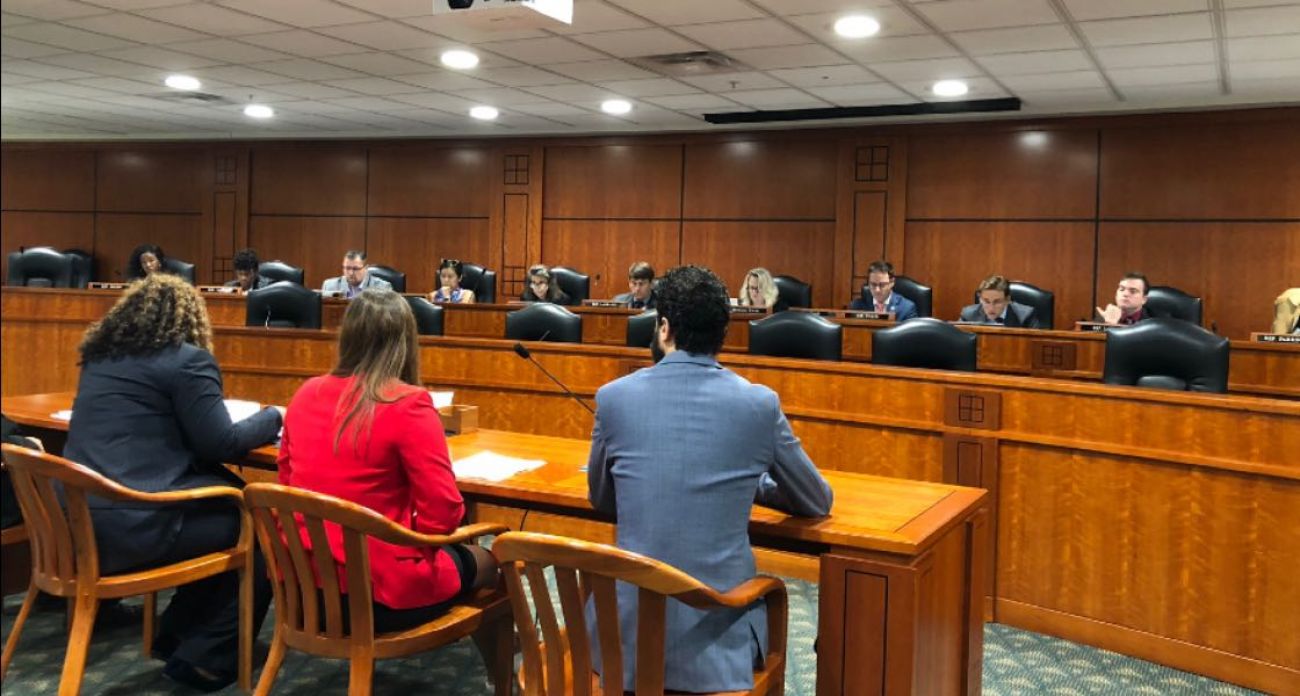Michigan House considers expungement of marijuana, traffic convictions

LANSING—Hundreds of thousands of Michiganders would be eligible to set aside their criminal record — or parts of it — under a bill package before the state House Judiciary Committee.
The proposal to expand criminal expungement would include misdemeanor marijuana convictions for conduct that is now considered legal under the adult-use marijuana law passed in November, as well as most traffic offenses. But expungement of pot convictions would not be automatic, to the chagrin of some Democrats.
The bills would automatically expunge non-violent convictions after 10 years — changes that experts said would have a big impact on people’s’ reoffense rates and on their ability to secure jobs and housing.
Both Democratic and Republican lawmakers lauded the six-bill package they say would make Michigan a national leader in expungement reform, though multiple Democrats criticized certain provisions for not going far enough.
“It’s one of those things that’s truly and profoundly good,” Rep. Eric Leutheuser, R-Hillsdale, told the judiciary committee Tuesday. “I think we could be making one of the most significant efforts in generations to help our fellow citizens gain fuller participation in our common life.”
Expunging (or “setting aside”) a crime doesn’t completely erase a conviction; police and prosecutors would still be able to see previous convictions for investigations and it would still count as a prior offense if a person is later sentenced for another crime. But it would make those convictions invisible to the general public, including prospective employers and landlords, who often turn away candidates with criminal records.
“You clear up someone’s criminal history and overnight there’s this jump in employability and a jump in income, statistically.”
— Rep. David LaGrand, D-Grand Rapids
The package includes a bill that would expunge many crimes automatically after a certain period — that’s different than the regular expungement process, which requires people with criminal records eligible for expungement to petition the court and go in front of a judge, who determines whether to grant it. Marijuana crimes would not be eligible for automatic expungement.
The package would, among other things:
- Automatically expunge up to two felonies or four misdemeanor convictions that are currently eligible for possible expungement 10 years after sentencing, probation, parole or finishing time in prison (whatever comes last) if they’ve remained crime-free. Lawmakers indicated Tuesday the bills will likely be amended to allow expungement of up to two felonies AND four misdemeanors to avoid unintentionally limiting the options.
- The felonies and misdemeanors can’t be assaultive or a serious misdemeanor, and must have a maximum punishment of fewer than 10 years in prison. That would rule out violent crimes such as sexual assault, armed robbery, domestic violence, murder and more. Crimes that are already eligible for expungement in Michigan would also fall under this bill. You can check whether your offenses are eligible using this interactive tool.
- Make most traffic violations eligible for expungement after four years and automatic expungement after 10. It would exclude DUIs, offenses committed by those with commercial drivers’ licenses, moving violations in work or school zones, car accidents resulting in death, failure to stop for a police officer and hit and runs.
- Make any marijuana misdemeanors that are now legal under the new adult-use marijuana law eligible for expungement.
- Allow people with up to three non-violent felonies to get up to two felonies and four misdemeanors expunged. Currently, only misdemeanors are eligible for expungement, and people with more than one felony and two misdemeanors are ineligible.
- Change the wait time before misdemeanors can be expunged from five years to three; eligible multiple felonies to seven years; and serious misdemeanors or a single felony to five years (felonies and serious misdemeanors previously were not eligible for expungement).
- Treat similar crimes committed within 24 hours as one felony conviction rather than multiple. This is known as “one bad night” legislation but would exclude violent crimes and those with a maximum prison sentence of 10 years or more.
“You clear up someone’s criminal history and overnight there’s this jump in employability and a jump in income, statistically,” said Rep. David LaGrand, D-Grand Rapids. “So we have this opportunity to do something that will massively improve the quality of lives of probably hundreds of thousands of Michigan residents.”
Sonja Starr, a criminal law professor at the University of Michigan who testified before the committee and later spoke with Bridge, said she found in a recent study that expungement has a significant positive impact on peoples’ lives. That includes a 25-percent increase in wages within two years and extremely low rates of reoffending.
No one spoke against the legislation Tuesday, but some lawmakers and people testifying questioned whether the wait time in the automatic expungement proposal should be shortened from 10 to five or seven years and whether marijuana crimes should also be eligible for automatic expungement.
Only around 6 percent of people eligible to get their criminal records expunged do so within five years, and only around 11 percent do it in their lifetime, Starr said. “That’s an incredibly depressing number,” she said.
There are several possible reasons for that, she said: People don’t know the option exists, they don’t understand how to navigate the legal system, or they don’t have a lawyer or can’t afford one. Increasing the number, type and timeframe of automatic expungements would help with that, she said.
Sen. Jeff Irwin, D-Ann Arbor, who has previously introduced legislation that would automatically expunge records for low-level pot crimes, also criticized that the House bills would require people to petition a court rather than clearing pot convictions automatically:
“People who have committed very petty crimes should be able to get rid of those without having to jump through additional hoops, including having to file hundreds of thousands of unnecessary applications with the courts,” he told Detroit Free Press. He also told Bridge that limiting the legislation to only include misdemeanor crimes would greatly limit the number of people who could get their marijuana records expunged, as certain things that are now legal (such as growing up to 12 plants in your house) would have been considered felonies under the old law.
House Judiciary Chair Rep. Graham Filler, R-DeWitt, said the decision not to include marijuana crimes in the automatic expungement proposal is intended for instances in which someone actually committed more serious pot crimes — such as dealing — but were able to plead down to conviction for a smaller crime.
Filler said he doesn’t expect many changes to the legislation before the next committee hearing despite those suggestions because the bills “represent a compromise” between law enforcement and civil liberty groups.
“If people are going to try to get everything they want in this bill, they run the risk of actually killing bills and stopping good expungement bills that are going to give access to tons of people and continue to make the public safe,” Filler said.
If passed, Starr said, the package would put Michigan among other states like Pennsylvania and Utah in being some of the first to pass expansive reform including automatic expungement.
It’s unclear exactly how many more people statewide would be eligible for expungement under the proposed guidelines, but Jeffrey Herbstman, Senior Data Scientist for the City of Detroit, said the legislation would help around 335,000 more people who are currently ineligible for expungement in Wayne County alone.
The committee is expected to hold a second hearing on the legislation in the coming weeks before voting. If it passes out of committee, it would go to the House floor before repeating the process in the Senate and heading to the governor’s desk.
See what new members are saying about why they donated to Bridge Michigan:
- “In order for this information to be accurate and unbiased it must be underwritten by its readers, not by special interests.” - Larry S.
- “Not many other media sources report on the topics Bridge does.” - Susan B.
- “Your journalism is outstanding and rare these days.” - Mark S.
If you want to ensure the future of nonpartisan, nonprofit Michigan journalism, please become a member today. You, too, will be asked why you donated and maybe we'll feature your quote next time!




